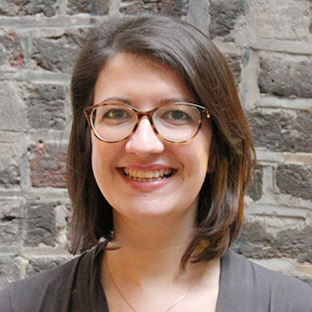If you know of a school that has a relationship with its local community that benefits students and the community alike, we want to hear from you.
As the new school term starts, the RSA and the Educational Collaborative for International Schools (ECIS) are beginning a programme of research that looks into leading practice from across the world in creating impactful relationships between schools and their communities.
The idea first came from conversations with ECIS, a membership organisation and champion for international schools, about public perception that international schools serve a highly-mobile global elite with little connection or commitment to the community in which they are located. Research has certainly shown that many international schools feel that the local community neither likes nor fully understands their school, and that it can be challenging to build strong and sustained relationships with their local communities.
This got us thinking about the challenges in school-community relations in the UK. In our fragmented education system, schools that were once fundamentally connected to and networked in their locality through their relationship to their local authority are increasingly run by academy chains headquartered elsewhere. In this context, as Kirstin Kerr and Mel Ainscow argue, “schools are losing connections with their established partners and the communities they serve”.
If we lose these connections, we miss out on a whole range of opportunities to support the development of children and young people, and their communities. Hargreaves argues that relationships between schools and their communities are vital to developing young people’s social capital, and that there is much intellectual capital in local communities that can be mobilised for the benefit of students and teachers. Indeed, research has shown that when schools build relationships with other schools and community partners, they can contribute to improving equality within the school system and society as a whole.
We believe it is time to recast the relationship between schools and their local communities; to break down the walls between school and community to allow for a sustained and equal exchange between the two.
We want to see communities benefitting from the positive social contribution of schools, and students benefitting from an educational experience that is enriched by types of learning that are rooted in their local community.
This might include, but is not limited to, the following forms of learning identified by the Coalition for Community Schools:
- Civic Education, which connects students’ learning about democratic processes with active involvement in civic life, both in and with their local community.
- Environmental Education, which capitalises on young people’s curiosity about the natural world by using the school’s surroundings and its local community as a framework for students’ learning.
- Place-Based Learning, which uses the unique history, environment, culture, and economy of a particular place to provide a rich context for learning.
- Service Learning, where students undertake research, strongly linked to academic goals, to identify a community need and respond to it.
- Work-Based Learning, which makes learning more relevant by offering opportunities for contextual and applied learning in the workplace.
So this is a plea to readers of this blog and RSA Fellows…
If you know of a school located in any part of the world that you believe is particularly successful in connecting with its community for the mutual benefit of both the students and the community, please let us know about it by filling in this short survey:
We can’t promise to go everywhere, but the more schools we hear about, the more likely we are to find what we’re looking for!

Join the discussion
Comments
Please login to post a comment or reply
Don't have an account? Click here to register.
Hi Laura I am one of the task group leads for the RSAs Innovative Education Network and am currently working with a group of schools in Cheshire and Uni of Manchester which I think has a lot of connection with the work you are doing. Would be good to chat.
Hi Laura
We have been involved in 'School Without Walls' for over 7 years now with Bath schools so there is some good synergy here and it would be good to talk. Please see